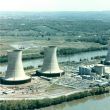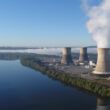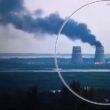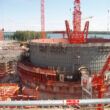Before reactors, appropriate systems
By Yun Zhou, March 6, 2014
Roughly four dozen countries that lack nuclear power are considering its adoption, but expressing interest in nuclear power and actually establishing a nuclear sector are different things. This is especially true for developing countries, as a majority of the four dozen are. Nuclear energy is a complex engineering proposition. It requires a major financial commitment. It cannot be justified unless a relatively large electricity grid is already in place. For these reasons among others, the majority of the developing countries that are contemplating the adoption of nuclear power will build no reactors in the foreseeable future.
A few will forge ahead—Turkey, for example, is now preparing for the construction of its first nuclear power facility. But most of the growth in the developing world's nuclear capacity will come in countries, notably China and India, where nuclear power already exists and where economic growth is driving strong electricity demand. In any event, developing countries that do embrace nuclear power—whether they are new entrants such as Turkey or established players such as China—face serious challenges that go beyond engineering, financing, and electricity grids. In particular, they must establish three things: a well-planned, sustainable process for nuclear development, an appropriate framework for safety, and a productive approach toward public attitudes on nuclear power.
A well-planned, sustainable development process establishes realistic expectations about the pace and scale of establishing a nuclear sector. It puts in place reliable procedures for issues such as choosing reactor designs. It encourages continuous review and improvement. Without such a development process, nuclear power programs can become very costly and time-consuming.
Well-functioning frameworks and organizations for nuclear safety can minimize the risks inherent in nuclear power plants. Though improvements in reactor design over the decades have improved safety at power plants, developing countries often must work hard to overcome shortages of qualified, experienced personnel and shortfalls in technical capability.
Public acceptance of nuclear energy is key to the expansion of nuclear sectors and also, ultimately, to their safe operation. In nations where policy making is not transparent, public opinion usually gains little attention at the early stages of nuclear development. This can become a major problem later on.
Challenges for China. The most ambitious nuclear energy state in the world today is China, which operates 20 reactors, is constructing 28 others, and is about to start construction on yet more. But China has faced, and in some cases struggled with, each of the three challenges identified above.
Regarding nuclear development and planning, China has made an extraordinary commitment to nuclear energy—even if plans have been altered somewhat by the accident at the Fukushima Daiichi Nuclear Power Station. In that accident's immediate aftermath, the Chinese government declared that it would not adjust its overall policy on nuclear power development. But it temporarily suspended approvals for new projects and toughened safety requirements as well. It also reduced its goal for installed nuclear capacity. The government now expects that 58 gigawatts of nuclear capacity will be installed by 2020, instead of the 80 gigawatts that were contemplated just before Fukushima. In addition, China has cut back on its plans for building second-generation reactors and has switched instead to third-generation designs. The advanced designs are safer, of course. But the switch has delayed the development of nuclear power in China, made it more expensive than expected, and significantly impacted manufacturers of nuclear equipment. And it has highlighted the fact that China's previous plans for nuclear energy depended too much on second-generation designs.
Regarding safety, China's nuclear sector has maintained a relatively clean record so far. But it is very debatable whether sound safety systems and a robust safety culture have been established within the nuclear industry. Some manufacturers of nuclear safety equipment, for example, once they have obtained all necessary certifications, can become free and easy about following regulations and implementing quality assurance procedures. They are known to purchase substandard raw materials and outsource work to unqualified subcontractors. Likewise, some utility companies neglect quality controls, accepting products from manufacturers that ought to be rejected. China's nuclear regulatory system needs improvement as well. Areas of concern include understaffed work forces for on-site safety inspections, inadequate procedures for on-site inspection and supervision, and a lack of advanced testing technologies and analytical methodologies.
China's government is centralized and its political system is closed. But that doesn't mean that public opinion about nuclear power is irrelevant. True, debate about nuclear power was scattered and disorganized before Fukushima, reflecting the public's low awareness of nuclear power (especially safety issues) and limited opportunities to participate in nuclear decision making. But after Fukushima, the public began to pay more attention. Debate intensified, protests broke out, and some local governments found nuclear projects hindered or even halted by public opposition. Going forward, enactment of China's plans for nuclear development will require strong, sustained public support. To ensure such support, the government should allow greater public participation during siting and licensing processes. Government and industry should respond more actively and transparently to public concerns about nuclear safety or nuclear accidents. (Withholding information and covering up mistakes only undermine public trust in government.) The government should also seek to educate the public about nuclear energy and safety; educational initiatives will be more effective if they are carried out by the government instead of electrical utilities.
Hard work. Around the world, safety concerns surrounding nuclear power have intensified as a result of Fukushima. But because of some developing countries' huge electricity demand and severe environmental stresses, the world nuclear industry has managed to keep moving forward. Still, any developing country that is considering the development or expansion of a nuclear energy sector must be aware of the challenges involved. These include engineering complexity and financial demands. They also include public acceptance, an issue that should be studied carefully ahead of time. Nuclear energy also requires a comprehensive development plan, one that takes into account a country's electricity demand, energy mix, economic characteristics, technical capabilities, geography, and so forth. In the realm of safety, developing countries can borrow regulations, rules, and standards from vendor countries—but challenges will remain. Some standards won't be applicable, or will need to be applied differently in their new environments, and standards in any event must continuously evolve. Developing nations must understand that, if they are to establish a strong safety culture, a well-functioning quality assurance system, and an effective system for regulatory enforcement and supervision, a great deal of time and effort is required.
Topics: Nuclear Energy
Share: [addthis tool="addthis_inline_share_toolbox"]














